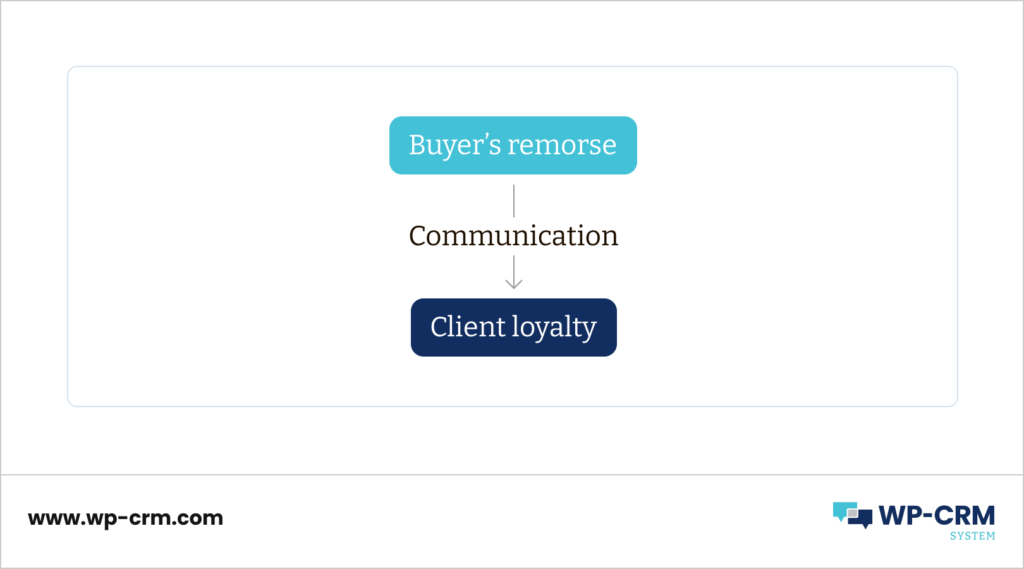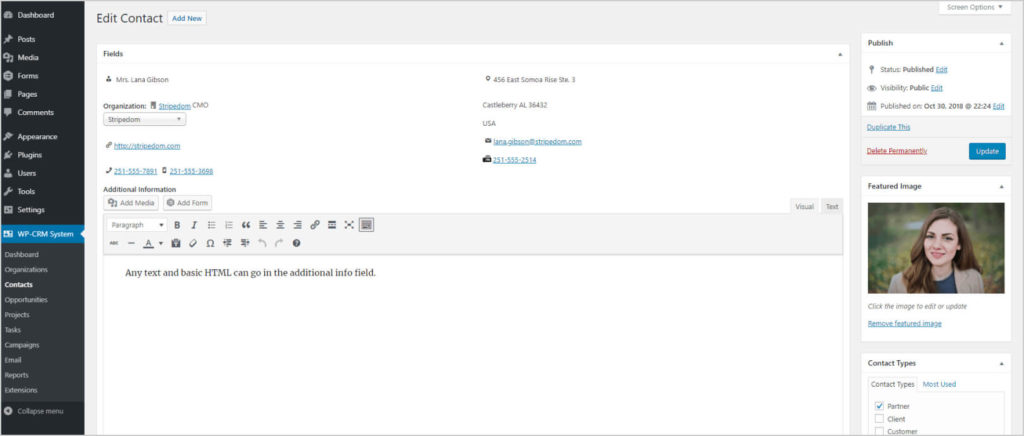Buyer’s Remorse: How Do You Block it Out?
Buyer’s remorse is a situation any business and service provider needs to avoid. It is the event when a client regrets a purchase after they have already made it. The reason it can be frustrating is that you may feel you have done your best to accommodate the customer to the product. However, you can’t identify the problems in your sales strategy unless you keep an open mind and are ready to make some changes.
On the other hand, buyer’s remorse may not occur as a result of anything your team has or hasn’t done during the client onboarding process and after. It can rather have a connection with your customer’s decision-making process, financial situation, emotions or poor judgment. The most demonstrative examples of this type of buyer’s remorse are purchases on a whim. In fact, a staggering 37% of Black Friday Cyber Monday shoppers have admitted regretting holiday shopping decisions.

As the reasoning behind buyer’s remorse can vary, we will attempt to explain how businesses can make sure they prevent it. In this article, we will first describe what buyer’s remorse is in more detail. After that, we will explore 3 ways to block it out and keep your hard-earned customers happy.
What Is Buyer’s Remorse
Buyer’s remorse is a feeling of regret or anxiety after making a purchase. It might affect anything as small as a cup of coffee, as big as real estate or automobiles.
Usually, the characteristics of buyer’s remorse include mental discomfort. In addition, it may consist of a strong negative reaction to a purchase that results from conflicting beliefs and attitudes. The most popular causes for a weak or adverse reaction to purchase are: not wanting to spend money, finding a better bargain, being concerned about making the wrong decision. Alternatively, the customer may feel sad simply because the product didn’t live up to their expectations. Whatever the cause, a buyer’s regret is a typical occurrence that everyone goes through at some point.
The key to converting buyer’s remorse into client loyalty is building a stronger connection with your customers. Clients will be more inclined to trust you and your company if you can establish a rapport and relationship with them. When your customer has faith in you, they are more likely to be loyal to your brand and less likely to have buyer’s remorse.

There are many strategies to improve your connection with your clients, including social media, personal interactions, customer service, and so on. However, your main goal should be to ensure that you are genuine in your communications and that you are giving value to the consumer. If you can accomplish this, then buyer’s remorse will swiftly transform into client loyalty for you.
3 Ways To Prevent Buyer’s Remorse
Any leader knows that the difference between business and repeat business is all about relationships. Even if you have the greatest product or service in the world, your clients won’t return if they don’t feel good about it. So, how can you ensure that you satisfy your customers? Here are 3 areas where you may specifically focus your efforts on preventing buyer’s remorse:
Build A Strong Foundation

As a business owner, it’s critical to establish connections with your consumers that go beyond a single transaction. Buyers want to know that you care about them as individuals. Also, you need to demonstrate you are willing to provide more than simply use them as a tool toward an end.
In order to secure a loyal customer base with a high lifetime value, you need to cultivate a solid foundation for your relationship with each customer. This means taking the time to get to know them and understanding their needs. Also, it is excellent customer service that exceeds their expectations. Therefore, make sure that you show your customers that you value and appreciate them. As a result, you’ll be able to keep them coming back for years to come.
Trust is the foundation of building a transparent client relationship, and this is especially true when it comes to business. Your customers need to know that you have their best interests at heart. The best method to build trust is to focus on creating agreed-upon benefits in your proposals and contracts. This way, your customers will know exactly what they’re getting, and they’ll be less likely to have regrets after they make a purchase. Once you’ve established trust, it will be much easier to build a strong, lasting relationship with your customers.
Set Clear Expectations
To avoid buyer’s remorse, customers should be informed as quickly as possible about what to anticipate from your team. This can be done verbally, via email, or both. It is a good idea to create a document that lists how their account will be handled, how invoicing will work, and what the next steps are in the process. Stick to the plan you initially agreed upon. This way, the client will know what to expect and can hold the company accountable if something goes wrong. Giving in-depth, comprehensive information fosters trust and keeps customers coming back.

When selling a product, it is important to manage the customer’s expectations. Giving false hope will only lead to disappointment later on. It is better to focus on the ways in which the product can improve their lives. If the customer feels assured of the benefits of the product, then buyer’s remorse is less likely. By being honest and transparent about the product, we can build trust with the customer. This could be the foundation of a relationship that will last long after the sale is made.
Use CRM Software
CRM, or customer relationship management, is a tool designed to help businesses manage their interactions with prospects and clients to avoid buyer’s remorse and disappointment. CRM software is a type of business management software that tracks customer interactions and past exchanges. This can be a valuable asset for sales teams, as it allows them to quickly identify which customers are ready to buy and which ones need more nurturing.
Additionally, CRMs often include features for automating sales tasks, such as sending follow-up emails and scheduling appointments. By streamlining the sales process, CRMs can help businesses close more deals and increase their overall revenue.
A convenient way to keep track of your clients’ relationships is having a CRM system on the dashboard of your company website. This way, you can manage your tasks more effectively without leaving customer communications on the side, or having to go through separate lists and documents while on the website. Our own WP-CRM is an easy-to-use WordPress plugin that helps you do just that and boost conversion rates to a new milestone!

Final Thoughts
Although it’s impossible to completely avoid buyer’s remorse, there are definitely ways to let it happen less often. By building a strong foundation for your business, setting clear expectations for clients, and using CRM software, you can make the buying process smoother for everyone involved. And don’t forget to keep track of your progress with a CRM like WP-CRM so you can continue improving your results.
